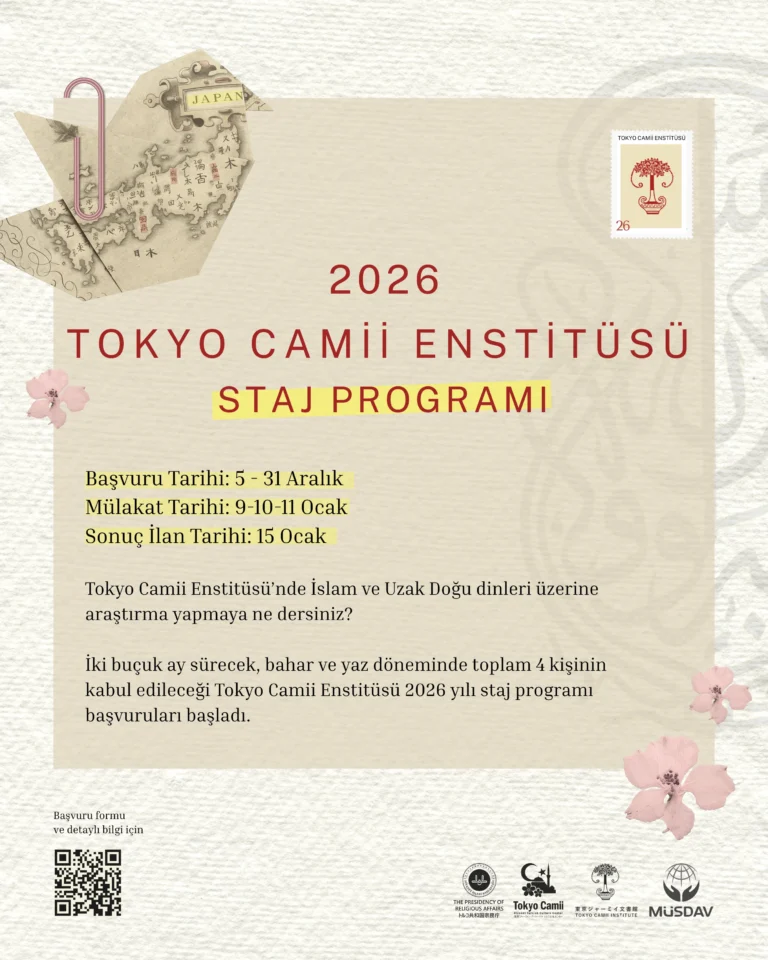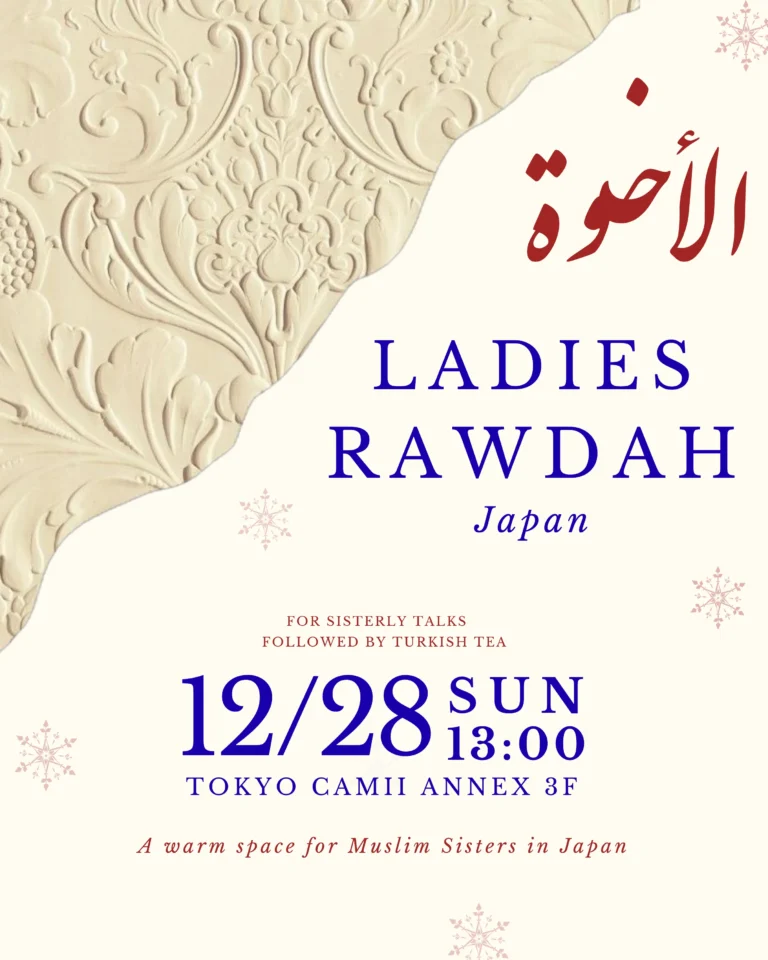TOKYO CAMİİ CUMA HUTBESİ “TAKVA, HAYÂ VE TESETTÜR”
TAKVA, HAYÂ VE TESETTÜR
Muhterem Müslümanlar!
Allah Teâlâ, Kur’an-ı Kerim’de bizlere şöyle seslenir: “Ey Âdemoğulları! Size mahrem yerlerinizi örtecek giysi, süsleneceğiniz elbise indirdik.”1 Bu ayet-i kerime, giyinme ihtiyacımızı karşılayan nimetleri bize Cenâb-ı Hakk’ın ihsan ettiğini ve O’na şükretmenin boynumuzun borcu olduğunu bildirir. Aynı zamanda giyinmenin bir güzellik ve zarafet gereği olduğuna işaret eder. Ayetin devamında ise şöyle buyrulur: “Takva elbisesi var ya, işte o daha hayırlıdır. Bunlar Allah’ın ayetlerindendir. Umulur ki düşünüp öğüt alırlar.”2
Aziz Müminler!
Takva elbisesi; imandır, edeptir. Takva elbisesi, bedeni örten giysilerin nasıl bir anlam taşıdığını idrak etmektir. Takva elbisesi, bedenine zarar verecek ve ruhunu incitecek her türlü hatadan uzak kalarak erdemli yaşama bilincidir.
Dear Muslims!
Haya (pious shyness) is about shying away from doing something unpleasant and about feeling embarrassed about committing a sin. Haya is the essence of Islamic morality; it is a call for morality for all humanity since the teachings of the first prophet. According to Islam, one of the greatest wisdoms behind clothing is that it is a requirement of haya both towards people and Allah (swt). For this reason, our Prophet (saw) says, “Allah is modest and covering. He loves modesty and covering.”3
Dear Believers!
Hijab is a manifestation of the resolve to live in the direction pointed out by Allah (swt) and His Messenger (saw). When we talk about hijab, we mean a shared concept that appeals to both men and women, and a high virtue. The idea that wearing garments or other forms of covering is exclusive to women solely or that it just involves wearing a headscarf is a great misconception. Because clothing or covering is a human principle and a sign of respect for privacy.
Dear Believers!
It is stated in the Holy Qur’an as follows, “O Prophet! Tell the believing men to lower their gaze and guard their chastity. That is purer for them. Surely Allah is All-Aware of what they do.”3 In the next verse, it is stated as follows, “And tell the believing women to lower their gaze and guard their chastity. And not to reveal their adornments except what normally appears. Let them draw their veils over their chests.”4 The fact that these two commandments are mentioned one after the other suggests that both men and women are obligated to be modest and cover themselves. Blissful are those who prefer, based on their free will, to live a modest, decent, and dignified life! Blissful are those who live with the awareness of servitude to Allah (swt) and come out as gainers both in this world and in the Hereafter!
[1] A’raf, 7/26.
[2] A’raf, 7/26.
[3] Nasa’i, Ghusl, 7.
[4] Nur, 24/30-31.
| Prayer | Time |
|---|---|
| Fajr | 05:07 |
| Sunrise | 06:38 |
| Dhuhr | 11:33 |
| Asr | 14:49 |
| Maghrib | 16:27 |
| Isha | 17:53 |





